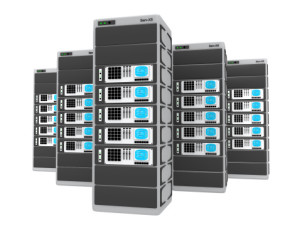
A well maintained PC can have a long life.
We’re all familiar with the concept of the BYO restaurant—the restaurant saves money because they don’t need a wine license, and you save having to pay for corkage and twice-the-price vino.
The only drawback is that you’ve got to swing past the off-license before whisking the Apple of your Eye off to that table-for-two. It’s win/win, right? But what about BYOD, bring your own device to work, and what BYOD Policy should you adopt?
That’s exactly what IT managers across the globe are waking up to: why force company-standard devices on employees that they don’t want, forcing you to carry your business phoneand the device you really want to use? You know, the one you carefully researched (and, perhaps, dreamily drooled over) for days online, the one that would buy 10 tables-for-two with that Apple of your Eye? Oops.
Cue BYOD—Bring Your Own Device to work. Figuring out that up to 70 per cent of employees were using their own devices for work purposes anyway, IT departments at tech-savvy firms are deciding to go with the flow, facilitating employees in accessing the company’s confidential information, client data, and server databases from the private device that, only hours previously, the employees teenage son was using to access dodgy, malware-laden websites…“Are they crazy?”, I hear your IT manager scream?
IT departments require security and compliance with company protocols regarding how and for what devices may be used. But employees need freedom, hassle-free lives, and their privacy.
BYOD navigates a kind of middle ground, accepting certain security risks in exchange for higher employee morale, contactability, and productivity. And it saves the company tons of money for hardware. BYOD can be done by establishing a number of personae on a device, limiting any ‘cross-contamination’ between said personae, and allowing users to separate their work and private life on one device, with different behavioural policies for each. Developing such mobile virtualisation solutions is already a valuable niche market—developing platforms for separating work and life on one device.
Preserving the devices characteristics (graphics, apps etc.) for each persona reduces the need for switching between personae and increases familiarity and ease of use. Indeed, preserving this user-experience, the look and feel, is key to bringing employees on board. A much poorer alternative would be to install two parallel operating systems, software, etc….guaranteed to sap any battery.
Certain issues remain unclear, such as what happens to company information stored on the device when an employee leaves the company (for example, is fired without warning), or whether the company should pay part of the costs of the device. It’s important that a company sets clear goals at the start for any BYOD initiative, e.g. be that to cut costs or improve efficiency, and it should be clear about what stipends and technical support it can provide.
Communication is the key, and BYOD is a trend that’s here to stay, with even schools toying with the concept of allowing students to bring their devices to school instead of heavy textbooks—already the reality at third level education.
And what with all that cash you’d be saving them, surely the company can afford to take you out for dinner? At a BYO restaurant, of course…
If you need help in defining security policies around BYOD then call us, we can help you ensure this policy works best for all involved parties. We have vast experience in Laptop repairs, and PC Maintenance in Ashbourne, Ratoath Meath and surrounding counties. We are here to help!





